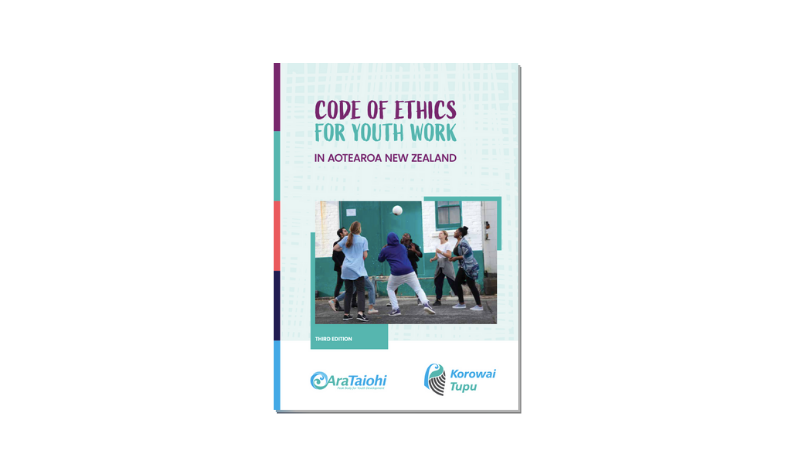We fuel the mauri, the inherent life spark of young people, supporting the development of their identity
Mauri is the life spark inherent in all young people. It includes their values beliefs, skills, and talents. Fuelling that life spark means young people are seen, recognised and valued for who they are. Young people are supported to follow their interests and passions, and to actively construct their own identity. Linked to their whakapapa, when their mauri is secure/solid, young people stand in their own truth.
Mauri mahi, mauri ora
A working soul is a healthy soul
The sources suggest ‘the industrious liveth’. Places the advantages of industry in opposition to the unpleasant results of idleness: e.g health vs sickness, security vs vulnerability, prosperity vs poverty.
(Mead & Grove, 2004)
1. Hononga Matua | Primary Relationship
1.1 The youth worker’s primary relationship is with the young person / young people they engage with.
1.2 The Youth Work relationship starts when the youth worker connects with the young person as a youth worker, evolves organically and ends naturally, by necessity or agreement.
1.3 The Youth Work relationship evolves with time. Youth workers take care to manage these transitions, prioritising the wellbeing and safety of the young person.
1.4 Where a conflict of interest exists between young people, it will be resolved in ways that minimise harm to all parties.
2. Whanonga Matatika | Behaviour Covered By The Code
2.1 Youth workers are positive role models. This Code covers any behaviour, whether connected to their work or personal time, in person and online, when it relates to or affects a youth worker’s practice.
3. Iho pūmanawa | Strengths-based
3.1 Youth workers support young people to identify and work to their strengths.
3.2 Youth workers identify and develop their own strengths.
3.3 Youth workers do not see young people as problems to be solved and avoid labelling young people negatively.
3.4 Youth workers identify and promote the traditions and people within the cultures of the young person they work with.
3.5 Youth workers remain open-minded as young people explore their identity, understanding that identity is multi-dimensional and evolving. There are many aspects of identity, spaces and ways to express this (including online profiles and other forms of digital engagement).
4. Ngākau pono | Integrity
4.1 Youth workers act with integrity, honesty, and impartiality.
4.2 Youth workers work in a competent manner.
4.3 Youth workers will not engage in activities that would bring young people, colleagues, their organisation, or Youth Work into disrepute. This includes words and actions (e.g. dress, flirting, offensive language, put-downs, body language, and unnecessary or inappropriate touch) that could be misunderstood or cause offence.
4.4 Should a youth worker be in a situation that may be considered unethical, they will notify the people they are accountable to, look at ways to minimise any negative consequences, and put in place strategies to avoid similar situations in the future.
5. Whakaaetanga matatika | Informed consent
5.1 Youth workers will clearly inform young people that they have the choice to be in a Youth Work relationship, in a way that is accessible and understandable.
5.2 Where engagement with a youth worker is imposed on the young person (by the Court or otherwise), the youth worker must explain to the young person the meaning and consequences of this. Youth workers in this situation will work towards gaining the young person’s trust and agreement to develop a Youth Work relationship.
5.3 Informed consent of the young person (and, where appropriate, whānau, family and caregivers) is required. A record of this may need to be kept.
5.4 Youth workers fully inform young people of their rights regarding feedback and complaints processes, including membership/s to professional bodies.
NextWhakapapa (Taiohi)